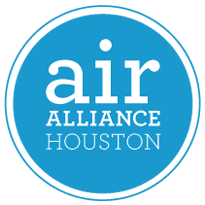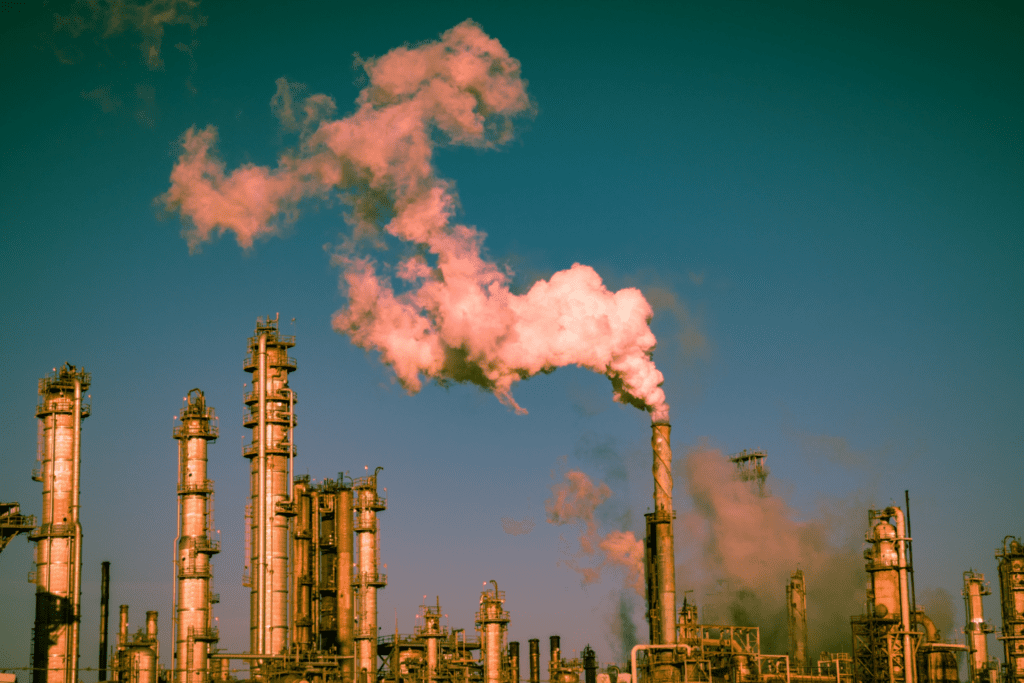AirMail - Refinery & Petrochemical Permits
Open Refinery and Petrochemical Plant Permit Applications
Do you have questions or need more help creating your comments? Email us at airmail@airalliancehouston.org. We may also be able to support/represent you if you are interested in participating in a hearing to challenge this permit.
Please make sure to contact your elected officials about your concerns regarding this proposed facility. They have networks and influence to effect change, but they need to hear from you first! Not sure who represents you? Check here.
Equistar Chemicals LP: Air quality permit No. 174650
Equistar Chemicals, LP, PO Box 777, Channelview, TX 77530-0777, has applied to the Texas Commission on Environmental Quality (TCEQ) for issuance of Proposed Air Quality Permit Numbers 174650 and N312, which would authorize construction of an Ethylene Derivatives Unit located at 8280 Sheldon Road, Channelview, Harris County, Texas 77530.
Immediate actions and help documents:
⚠️ ACTION: Contact your representatives to request a public meeting
State Representative: Ana Hernandez 713-675-8596
State Senator: Carol Alvarado 713-926-6257
Resources:
Elected Officials Call Script
Hi, my name is ___________ and I reside in your district.
Equistar Chemicals LP is proposing to build a new petrochemical unit near me.
Tell your representative why the issue is important to you. Include a personal story about how it affects you, your family and/or your community.
Please contact TCEQ to request a public meeting so that our concerns can be heard.
Pasadena Refining System: Renewal Air Quality Permit No. 3711
Application and Draft Permit. Pasadena Refining System, Inc, 111 Red Bluff Rd, Pasadena, TX 77506-1530, has applied to the Texas Commission on Environmental Quality (TCEQ) for a renewal and revision of Federal Operating Permit (herein referred to as Permit) No. O3711, Application No. 32081, to authorize operation of the Pasadena Refinery System, a Petroleum Refineries facility. The area addressed by the application is located at 111 Red Bluff Rd in Pasadena, Harris County, Texas 77506-1530. This link to an electronic map of the site or facility’s general location is provided as a public courtesy and not part of the application or notice.
Immediate actions and help documents:
⚠️ ACTION: Attend a Public Meeting
Thanks to all those who contacted elected officials, a meeting has been requested by Senator Carol Alvarado.
What are Refineries and Petrochemical Plants and why are they an air quality concern?
Refineries and petrochemical plants are facilities for industrial processes related to oil and gas.
- Refineries transform crude oil into usable petroleum products, like fuel, diesel, kerosene, or asphalt.
- Petrochemical plants convert petrochemical compounds into raw materials for products like plastic, lubricants, and solvents.
Refineries and petrochemical plants are major sources of hazardous emissions, including particulate matter (PM), nitrogen oxides (NOx), carbon monoxide (CO), hydrogen sulfide (H2S), and sulfur dioxide (SO2). Many of the emissions from these facilities are potentially carcinogenic (cancer-causing) such as BTEX compounds (benzene, toluene, ethylbenzene, and xylene). Refineries and petrochemical facilities may also emit a wide range of toxics such as ethylene oxide, 1,3 – butadiene, and chloroprene These pollutants represent chronic risks to community health that may develop over years of exposure.
In addition, sudden events like refinery explosions and fires, plant failures, or chemical and gas leaks can lead to higher concentrations of toxins and highly corrosive chemicals in the air that can result in conditions that are immediately dangerous to the safety and health of nearby residents.
Sources of emissions near refineries and petrochemical plants include:
- Flares
- Equipment leaks and malfunctions (fugitive emissions)
- Refinery operations (High-temperature combustion processes in the burning of fuels)
- Transfer of products through pipelines (raw material, intermediates, and finished products)
- Refinery explosions and fires
The health impacts of air pollution exposure include:
- Damaged cells in the respiratory system
- Stress to the heart and lungs
- Aggravated respiratory conditions, including asthma
- COPD (Chronic obstructive pulmonary disease)
- Increased likelihood of cancer development over lifetime
- Shortened life span
Additionally, individuals who have been consistently exposed to air pollution may be more likely to suffer severe health impacts from COVID-19.
In addition to the potential public health impact of air toxics, the industrial processes associated with refineries and petrochemical plants release carbon dioxide, a common greenhouse gas. Increased levels of carbon in the earth’s atmosphere lead to global climate change.
Water contamination is another severe environmental concern. Wastewater from industrial processes can contaminate surrounding groundwater and surface water. During catastrophic weather events such as heavy rains and floods, the runoff of toxic materials may infiltrate surrounding communities; compounding the risks associated with extreme weather.
In the Greater Houston area, refineries and petrochemical plants disproportionately impact communities of color and with lower incomes. These facilities are frequently located in or near these communities, namely along the Houston Ship Channel. This includes residents of neighborhoods such as Galena Park and Harrisburg/Manchester.
This industrial proximity is detrimental to resident health and is known as “double jeopardy.” In other words, communities are both impacted by toxic emissions and pollutants as well as risks of exposure to chemical accidents.

